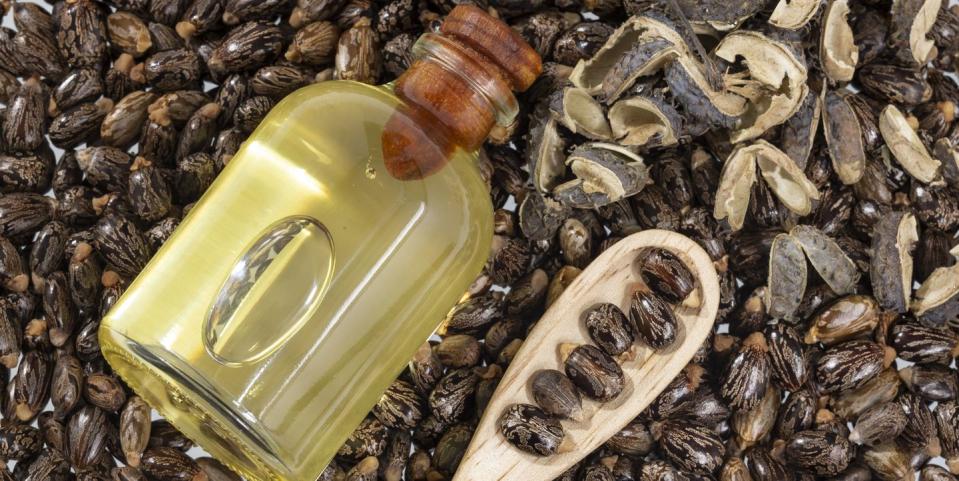Eye expert issues strong warning against using castor oil to cure vision problems

Castor oil has been used for thousands of years in traditional and folk medicine to treat a range of issues from bronchitis to skin infections.
Extracted from the seeds of the castor bean plant, this humble vegetable oil has been used as a moisturiser, laxative, and even a chest rub to ease lung congestion.
But doctors have spoken out about one thing it definitely shouldn’t be used for, despite what you might hear on social media, treating vision problems.
Thousands of videos have been made and shared by TikTok users recommending people apply castor oil to the eyelids, eyelashes, and sensitive under eye area to alleviate dryness, reduce ‘floaters’, prevent cataracts, improve vision, and even treat glaucoma.
One glasses-wearer claims that her vision has improved after just two weeks of applying castor oil, while another claims it has helped prevent an eye infection from developing and reduced the amount of ‘floaters’ in her general vision.
Yet, as is common with most TikTok trends, there is no scientific proof to support these claims.
Speaking to Women’s Health, Dr Keval Sejpar, Principal Optometrist and member of Théa UK’s E.Y.E. (Expert on Your Eyes) team said: ‘Despite what’s trending on TikTok, rubbing castor oil over your eyes and eyelashes isn’t an effective treatment for issues such as dry eyes. Since the skin surrounding your eyes is delicate, using oils like castor oil can lead to more discomfort and irritation without actually treating your eyes.'
Dr Elizabeth Hawkes, a Consultant Ophthalmic and Oculoplastic surgeon told WH it’s a ‘worrying’ trend, and could be doing a lot more harm than good. Although over-the-counter eye drops often contain castor oil due to its moisturising properties, those products are specifically designed and tested for treating dry eyes, while commercially available bottles of castor oil may contain harmful extras such as preservatives, dyes, and fragrances that can provoke eye irritation or infection.
Dr Hawkes said: ‘While castor oil has been used in traditional medicines for many years, it is not meant to be used on or near the eyes. The general castor oil you may buy in the shops could contain added fragrances and be un-sterilised.
'It is certainly not suitable to help treat dryness, floaters, cataracts, poor vision or even glaucoma, as some TikTok videos have claimed. There is very, very little evidence about this and if you have concerns around your eyes, you need to see an ophthalmologist. While castor oil is a common ingredient in many eye drops due to its lubricating properties, I do not recommend using pure castor oil in the eyes.
'I have heard that castor oil can make eyelashes look fuller too but, again, please avoid getting it in your eyes. You need a sterilised mascara wand to dip in and coat the clashes. You can leave it on overnight. Be very careful not to get the oil in your eyes. You should definitely not use castor oil if you wear contacts, have a serious eye condition or are using eye drops and ointments. Castor oil can cause blurry vision and itching too.'
Further research into castor oil and eye health is needed to confirm the safety of this approach, as there is little evidence that even eye drops formulated with a low-concentration castor oil mixture helped with dry and inflamed eyelids.
The best way to keep your eyes healthy is to seek professional medical advice from a professional optometrist. The NHS recommends getting routine eye examinations every two years or more frequently if advised by your optometrist or if you have a family history of glaucoma.
You Might Also Like

 Yahoo Sport
Yahoo Sport 





































